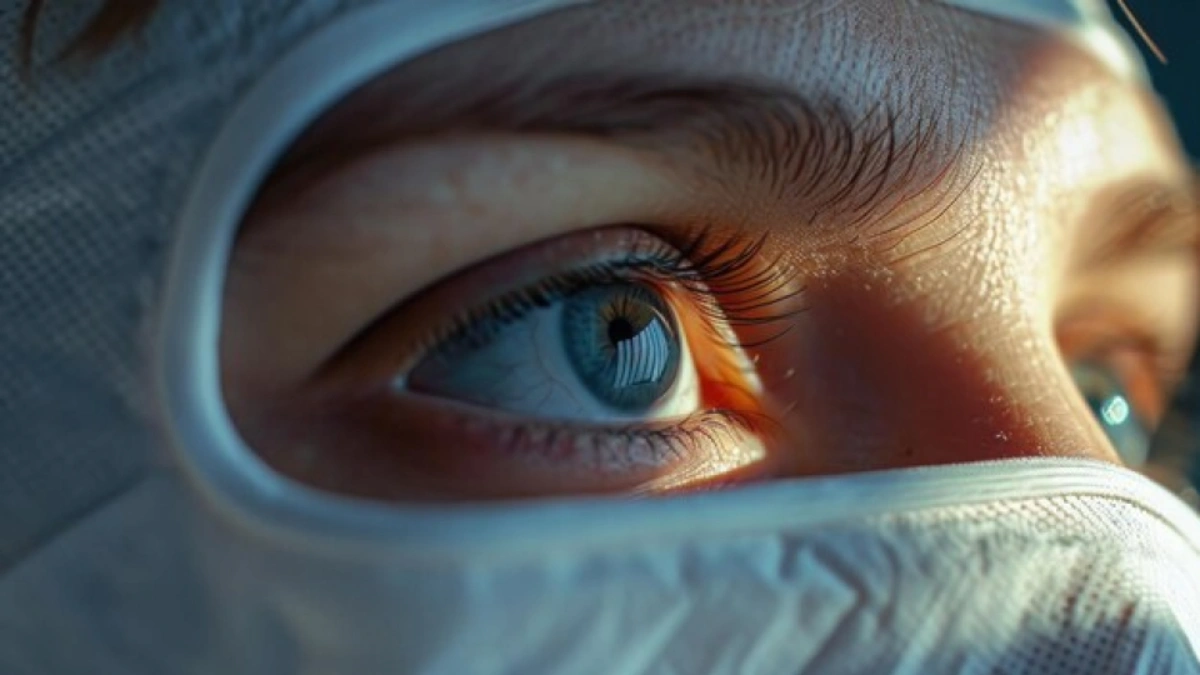Eye cancer treatment in Turkey is gaining global attention due to its advanced medical technology, skilled professionals, and cost-effective treatment options. Eye cancer, although rare, demands prompt and effective treatment to ensure the best outcomes. The different types of eye cancers, their symptoms, diagnostic procedures, and treatments will be comprehensively discussed in this article.
What is Eye Cancer?
Eye cancer, also known as ocular cancer, involves malignant conditions affecting the eye. Key types include intraocular melanoma, intraocular lymphoma, and retinoblastoma. Intraocular melanoma, the most common, starts in the uvea, the middle layer of the eye. Intraocular lymphoma typically affects older adults and can present in both eyes simultaneously. Retinoblastoma is a rare childhood cancer originating in the retina.
Types of Eye Cancer
- Intraocular (Uveal) Melanoma: Predominantly originates in the uvea.
- Intraocular Lymphoma: Commonly affects both eyes and is found in older adults.
- Retinoblastoma: A rare childhood cancer starting in the retina.
Some cancers affecting the eye originate elsewhere in the body, such as the breast or lungs, and metastasize to the eye.
Eye Cancer Symptoms
Detecting eye cancer early is crucial. Symptoms may vary depending on the type and stage of cancer but often include:
- Shadows, flashes of light, or wiggly lines in vision
- Blurred vision
- A dark patch in the eye that increases in size
- Partial or total loss of vision
- Bulging of one eye
- A lump on the eyelid or in the eye that is increasing in size
- Persistent eye irritation
- Rarely, pain in or around the eye
Eye Cancer Treatment Side Effects
Treatment side effects can range widely depending on the therapy used. Common side effects include:
- Fatigue
- Skin irritation or changes at the radiation site
- Eye pain or discomfort
- Dryness or watering of the eyes
- Visual disturbances
Diagnosing Eye Cancer
Accurate diagnosis involves a meticulous process using several advanced imaging technologies.
Diagnostic Procedures
- Silt Lamp Examination: Provides a detailed view of the eye.
- Indirect Ophthalmoscope: Offers a wide view of the inside of the eye.
- Ultrasound: Determines the density and features of the tumour.
- Optical Coherence Tomography (OCT): Assesses retinal layers and fluid presence.
- Magnetic Resonance Imaging (MRI): Sometimes used to gather additional information.
In certain cases, a fine needle biopsy is performed to obtain a sample for cytopathology.
What Are the First Signs of Eye Cancer?
Early detection is critical for effective treatment. The first signs include subtle vision changes, persistent irritation, and unusual growths. Regular eye examinations are imperative for individuals at higher risk.
Eye Cancer Treatment Cost inTurkey
One of the significant benefits of eye cancer treatment in Turkey is its affordability. The cost is significantly lower compared to countries like the US and UK, without compromising on the quality of care.
What Are the Symptoms of a Tumor Behind the Eye?
Symptoms indicating a possible tumour behind the eye include:
- Bulging of one eye
- Double vision
- Pain around the eye
- Loss of peripheral vision
Treatment of Eye Cancer in Turkey
Treatment options in Turkey are extensive and utilize the latest technology.
Effective Treatment Methods
- Topical Chemotherapy: For surface eye tumours.
- Targeted Therapy: Specific drugs target cancer cells.
- Radiation Therapy: Includes brachytherapy, where radioactive plaques are placed near the tumour.
- Surgical Excision: Removes tumors surgically when feasible.
Brachytherapy
Brachytherapy is a prominent treatment for cancers such as uveal melanoma. Radioactive seeds are configured and placed precisely to minimize damage to surrounding structures. Post-treatment, the plaque is surgically removed after adequate radiation application.
Success Rates of Eye Cancer Treatment in Turkey
Success rates vary by cancer type, but brachytherapy shows a 95-98% success rate in local control of uveal melanoma. Early-stage and surface tumours often require less complex interventions.
Why Choose Eye Cancer Treatment in Istanbul, Turkey?
Turkey’s eye cancer treatment offers cutting-edge therapies, professional and experienced medical teams, and comprehensive services that include transportation and translation. The affordability makes it an attractive destination for high-quality medical care. At Avicenna International Hospital, we provide a disciplined approach to your health, ensuring the best possible care. Contact us today for a personalized consultation.
The most effective treatment varies by cancer type but brachytherapy is highly effective for uveal melanoma, showing a 95-98% success rate in local control.
Yes, Turkey is renowned for its advanced medical technology, experienced doctors, high service quality, and affordability, making it an excellent choice for cancer treatment.
Survival rates depend on the type and stage of the cancer, but early detection and effective treatment like brachytherapy have high success rates, particularly for localized eye cancers.







